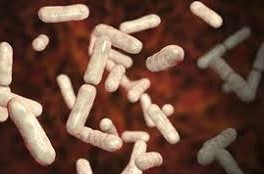Bacillus subtilis is a rod shaped, probiotic bacterium. It is found in the soil like most members of the Bacillus family and the gastrointestinal tract of ruminants and humans. Bacillus subtilis bacteria secrete commercially important industrial enzymes such as amylase, protease,pullulanase, chitinase, xylanase, lipase, among others. Bacillus subtilis is also responsible for producing antibiotics like bacitracin (effective against Gram-positive bacteria), polymyxin (affective against Gram-negative bacteria), difficidin (a broader spectrum), subtilin, and mycobacillin.
Bacillus subtilis SNZ 1972 was originally isolated from the soil by Sanzyme Biologics after extensive screening and characterization of various strains of Bacillus subtilis. By virtue of ability to form stress-resistant shield (endospore) Bacillus subtilis SNZ 1972 can protect itself against many stress situations such as acidic, alkaline, osmotic, or oxidative conditions, and heat. It survives through all manufacturing processes and it does not show decrement in viability of cell.
Safety of Bacillus subtilis SNZ 1972 is verified by a series of in vitro and in vivo studies. Based on these scientific procedures, Bacillus subtilis SNZ 1972 spores received self-affirmed GRAS (generally recognized as safe) status and it is intended for use as a food ingredient for consumers in the following food categories: bakery, cereal bars, dairy products and vegetable and fruit juices. Bacillus subtilis SNZ 1972 has also been studied for healthy digestion
Disclaimer: These statements have not been evaluated by the Food and Drug Administration. These products are not intended to diagnose, treat, cure, or prevent any disease.




